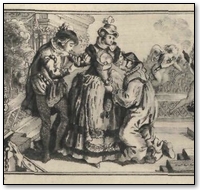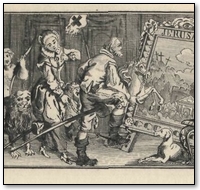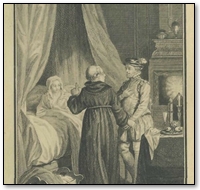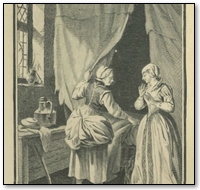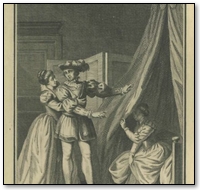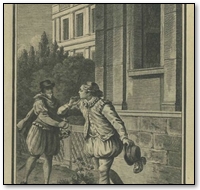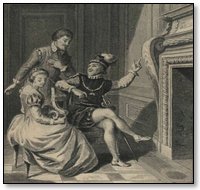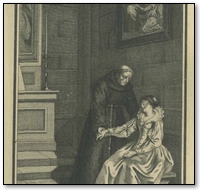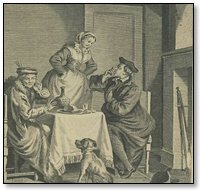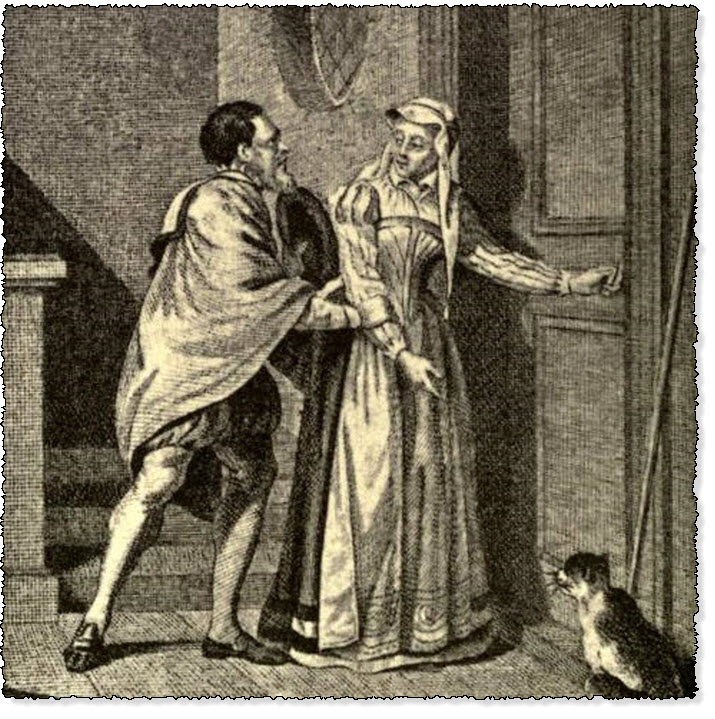
the Secretary Imploring The Lady Not to Tell of his Wickedness
The Heptameron - Day 3, Tale 27- the Secretary Imploring The Lady Not to Tell of his Wickedness
TALE XXVII.
A secretary sought the wife of his host and comrade in dishonourable and unlawful love, and as she made show of willingly giving ear to him, he was persuaded that he had won her. But she was virtuous, and, while dissembling towards him, deceived his hopes and made known his viciousness to her husband. (1) 1 The incidents here related would have occurred at Amboise between 1540 and 1545. The hero of the story would probably be John Frotté, Queen Margaret's First Secretary, who also apparently figures in Tale XXVIII. The Sires de Frotté had been in the service of the Dukes of Alençon since the early part of the fifteenth century. Ste-Marthe says of John Frotté that he was a man of great experience and good wit, prudent, dutiful and diligent. He died secretary to Francis I.—L. and B. J.
In the town of Amboise there lived one of this Princess's servants, an honest man who served her in the quality of valet-de-chambre, and who used readily to entertain those that visited his house, more especially his own comrades; and not long since one of his mistress's servants came to lodge with him, and remained with him ten or twelve days.
This man was so ugly that he looked more like a King of the cannibals than a Christian, and although his host treated him as a friend and a brother, and with all the courtesy imaginable, he behaved in return not only like one who has forgotten all honour, but as one who has never had it in his heart. For he sought, in dishonourable and unlawful love, his comrade's wife, who was in no sort attractive to lust but rather the reverse, and was moreover as virtuous a woman as any in the town in which she lived. When she perceived the man's evil intent, she thought it better to employ dissimulation in order to bring his viciousness to light, rather than conceal it by a sudden refusal; and she therefore made a pretence of approving his discourse. He then believed he had won her, and, paying no heed to her age, which was that of fifty years, or to her lack of beauty, or her reputation as a virtuous woman attached to her husband, he urged his suit continually.
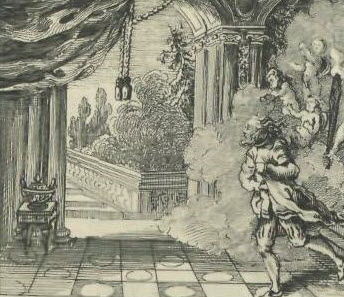
One day, the husband being in the house, the wife and her suitor were in a large room together, when she pretended that he had but to find some safe spot in order to have such private converse with her as he desired. He immediately replied that it was only necessary to go up to the garret. She instantly rose, and begged him to go first, saying that she would follow. Smiling with as sweet a countenance as that of a big baboon entertaining a friend, he went lightly up the stairway; and, on the tip-toe of expectation with regard to that which he so greatly desired, burning with a fire not clear, like that of juniper, but dense like that of coal in the furnace, he listened whether she was coming after him. But instead of hearing her footsteps, he heard her voice saying—
"Wait, master secretary, for a little; I am going to find out whether it be my husband's pleasure that I should go up to you."
His face when laughing was ugly indeed, and you may imagine, ladies, how it looked when he wept; but he came down instantly, with tears in his eyes, and besought her for the love of God not to say aught that would destroy the friendship between his comrade and himself.
"I am sure," she replied, "that you like him too well to say anything he may not hear. I shall therefore go and tell him of the matter."
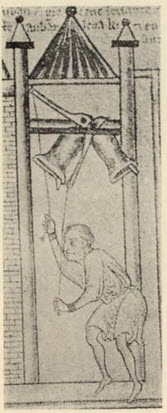
Heptameron Story 27
And this, in spite of all his entreaties and threats, she did. And if his shame thereat was great as he fled the place, the husband's joy was no less on hearing of the honourable deception that his wife had practised; indeed, so pleased was he with his wife's virtue that he took no notice of his comrade's viciousness, deeming him sufficiently punished inasmuch as the shame he had thought to work in another's household had fallen upon his own head.
"I think that from this tale honest people should learn not to admit to their houses those whose conscience, heart and understanding know nought of God, honour and true love."
"Though your tale be short," said Oisille, "it is as pleasant as any I have heard, and it is to the honour of a virtuous woman."
"'Fore God," said Simontault, "it is no great honour for a virtuous woman to refuse a man so ugly as you represent this secretary to have been. Had he been handsome and polite, her virtue would then have been clear. I think I know who he is, and, if it were my turn, I could tell you another story about him that is no less droll."
"Let that be no hindrance," said Ennasuite, "for I give you my vote."
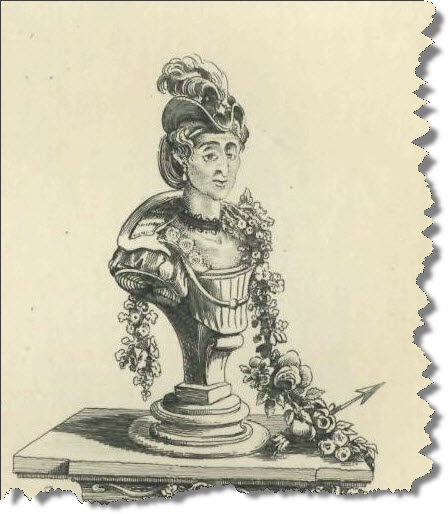
Thereupon Simontault began as follows:—
"Those who are accustomed to dwell at Court or in large towns value their own knowledge so highly that they think very little of all other men in comparison with themselves; but, for all that, there are subtle and crafty folk to be found in every condition of life. Still, when those who think themselves the cleverest are caught tripping, their pride makes the jest a particularly pleasant one, and this I will try to show by telling you of something that lately happened."
Online Edition of the Heptameron
This is the Heptameron of Marguerite de Navarre
Other Sites: CruikshankArt.com · Dante's Inferno · Book-Lover.com · Canterbury Tales ·
This site is created by the Heptameron Information Society.


